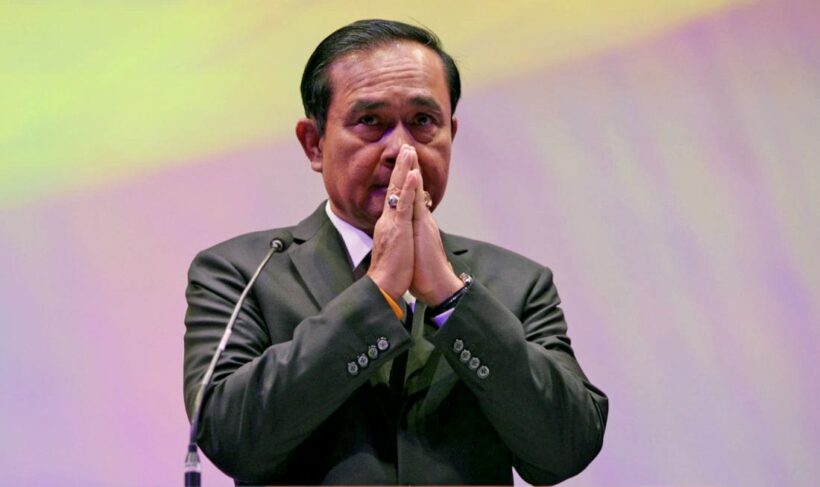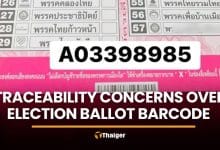Election Commission discussing prime minister term limit today

With what many believe to be the end of PM Prayut Chan-o-cha’s eight-year term limit just three days away, the Election Commission will discuss today the legal debate over if he can remain in the prime minister seat in any capacity beyond August 24.
That date marks eight years since PM Prayut took office, and the current constitution allows a maximum of eight years for any prime minister, but the current constitution was only adopted four years ago. It’s this discrepancy that forms the basis of the hotly debated legal question: Does PM Prayut’s constitutionally mandated eight-year limit start from the date he took office or from the date the constitution was ratified?
Activist Srisuwan Janya submitted a petition to the Election Commission and the Office of the Ombudsman demanding a definitive answer from the Constitutional to this question on August 5. The Ombudsman responded on Wednesday, rejecting the demand by saying that it is not in their jurisdiction. Yesterday the Election Commission chairman said they would take up the matter today.
A closely related issue is the debate over whether, if it’s decided that PM Prayut’s term limit has been reached, he could just step into the role of caretaker prime minister, continuing his tenure under a slightly different name. Deputy Prime Minister Wissanu Krea-ngam had commented that Prayut could essentially be a transitional prime minister when, if ever, a suitable replacement was elected.
A former Election Commissioner rebutted that idea on Facebook, saying that if the courts decide his eight years are up, he could not be a placeholding caretaker after August 24, pointing out that former Prime Minister Yingluck Shinawatra was also barred from being a caretaker.
Opposition party Pheu Thai Party parliament member Somkid Chuekong also expressed a strong disagreement with PM Prayut remaining as caretaker prime minister.
“Taking the role of caretaker will only lead to disunity. Everyone knows that General Prayut has exceeded eight years. I suggest Gen Prayut take this chance to leave his post with dignity.”
The actual legal precedent for how power should shift at the end of a prime minister’s tenure is laid out under Section 41 of the State Administration Act of 1991. It states that the House should choose one of the deputy prime ministers to act as interim Prime Minister under a new one is elected.
SOURCE: Bangkok Post
Latest Thailand News
Follow The Thaiger on Google News:


























